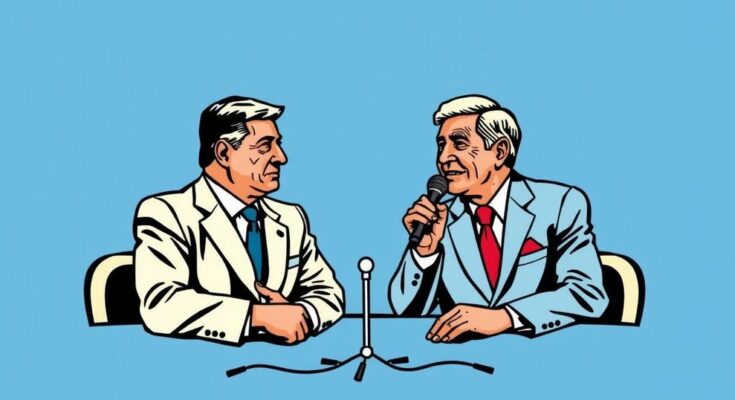Uruguay held a presidential run-off between Alvaro Delgado and Yamandu Orsi, highlighting the country’s commitment to democratic stability. Orsi gained 44% in the first round, while Delgado secured 27%. Both candidates aim to improve the economy and pledged to respect the election results, showcasing Uruguay’s unique political climate compared to its regional peers.
In Uruguay, a crucial presidential run-off was held between conservative candidate Alvaro Delgado and leftist contender Yamandu Orsi. This run-off followed a general election where Orsi of the left-wing Broad Front secured 44 percent of votes but fell short of the majority required. Delgado, from the ruling National Party, came in second with only 27 percent.
Both candidates have underscored the necessity of enhancing Uruguay’s economy; Orsi prioritizing wage increases for low-income workers while Delgado seeks to streamline governmental processes and establish trade agreements, notably with China. Throughout the campaign, they committed to upholding the election results and fostering collaboration regardless of who wins.
Uruguay’s political climate remains comparatively stable relative to other Latin American nations facing turmoil, as highlighted by the devolution of political order in Mexico and Venezuela. Thus, Uruguay showcases a model of democratic coexistence, even amidst prior challenges facing the Broad Front coalition, which lost power in the 2019 elections.
Uruguay, known for its democratic stability, recently conducted a significant presidential run-off election, marking a key event in the country’s political landscape. Unlike its regional counterparts, which have experienced electoral violence and accusations of fraud, Uruguay’s election was characterized by relative calm and political decorum. The run-off came after no candidate achieved over 50% of the votes during the first round, leading to a direct contest between the top two candidates: Alvaro Delgado and Yamandu Orsi. This election is seen as pivotal in shaping the future direction of Uruguay’s governance and economic policies.
In summary, Uruguay’s presidential run-off presents a significant political moment, reflecting the country’s dedication to democratic principles amid regional instability. Candidates Orsi and Delgado, although from opposing parties, emphasize cooperation and mutual respect, ensuring that their differing policies do not compromise the democratic integrity of the electoral process. The outcome of this election will be pivotal in determining Uruguay’s political future and economic direction.
Original Source: www.aljazeera.com




